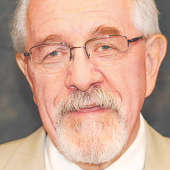- Christmas shopping is done, presents wrapped, strings attached? (12/14/16)
- Cecil is dead and human lives are threatened every day (8/12/15)
- As state flags go, Nebraska's ranks 50th (7/8/15)
- When everything looks like a nail (4/29/15)
- Who remembers to coal slurry pipeline debate? (3/11/15)
- More revelations in Department of Corrections mess (12/17/14)
- The Legislature becomes more Republican (11/19/14)
Opinion
Lawmakers take still another look at tax incentives
Wednesday, September 11, 2013
State lawmakers continue to ponder whether tax breaks given to large corporations to locate or expand in Nebraska are really beneficial.
It's a discussion that rears its head every year (or so it seems) as the pros and cons about LB775, the Employment and Investment Growth Act passed in 1987, are considered by yet another legislative committee or two. The measure was proposed and promoted by Nebraska's first (and only) female Governor, Kay Orr. It was deemed the most significant tax proposal in a decade since former Gov. Norbert Thiemann, like Orr, a Republican, had managed to shepherd state income and sales taxes onto the books in the 70s.
Orr's move was necessitated by a threat from Omaha businessman Mike Harper who said he would move growing food giant ConAgra to Tennessee unless the company started receiving significant tax breaks. Coming on the heels of Omaha's loss of Northern Natural Gas to Houston, Texas, where it was renamed Enron, Harper's threat got Orr's attention and caused a stir among other corporate giants such as Union Pacific and Mutual of Omaha. On the heels of a major agricultural downturn, the threats gave the Republican governor the traction she needed in the officially non-partisan Unicameral to get the measure passed. She collaborated with Omaha Senator Vard Johnson, a Democrat who chaired the Revenue Committee, to get the costly package of corporate tax breaks passed and appease Harper.
Critics complained the criteria that companies add 100 new employees and invest $12 million was often abused and that some companies simply used the money to buy corporate jets or offer other perks to top executives. Mutual allegedly laid workers off as part of its plan to upgrade computers and invest the required funds. But ConAgra and UP and others stayed put, a move that Johnson later said made a huge difference in Omaha retaining its clout as a serious place to do business. Johnson also lauded Orr for having the guts to do what she did. Orr later said she felt her one and only term as governor proved two things. She was a good governor, but a lousy politician.
Passage of the bill wasn't easy. The Legislature's veteran skeptic, Sen. Ernie Chambers of Omaha, mounted a filibuster to stop the measure amid cries of corporate welfare and blackmail. One amendment he offered would have required that ConAgra's corporate logo be tastefully added to the state flag.
Several billion dollars in subsidies have been handed out in the form of property tax exemptions, sales and income tax refunds and a lower income tax rate for high-income employees, since the law passed in 1987. Nearly 89,000 jobs have been created, but annual reports from the state Department of Revenue clearly indicate that most of those jobs would have been created anyway. Former Gov. Bob Kerrey questioned whether the Legislature was giving money to the people who needed it the least.
A well-known national economist said the job creation proposals were economic snake oil, but he understands the dilemma of a politician trying to keep from losing a company. That was the case with Orr and ConAgra and the others that threatened to leave the state. One of the frustrations with the proposal was that companies didn't have a lot of requirements to report results to the public. That all changed when the pot was sweetened with new incentives in 2005 and the program was renamed the Nebraska Advantage Act, which now discloses the names of companies receiving subsidies, but in two-year increments, rather than specific dollar amounts by year.
Since 2006, qualifying businesses have created 7,103 new jobs and invested $3.5 billion. Lawmakers wonder if that money would have come and those jobs been created without the incentives. Coming up with an answer to that question will be important as the Legislature's Tax Modernization Committee recommends changes to their colleagues next session.

